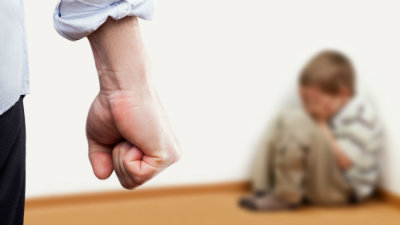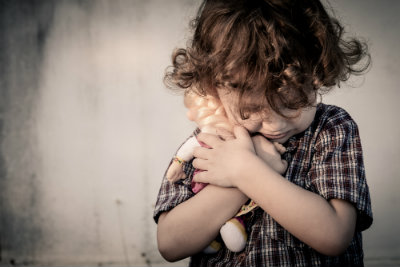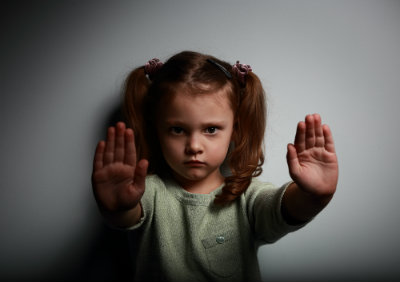 A child begins life with wide-eyed innocence.
A child begins life with wide-eyed innocence.
How heartbreaking, then, when fear and pain drive out trust and innocence . . . when a child is abused or neglected.
In honor of National Child Abuse Prevention Month we at Choices Pregnancy Center want you to know we are here to help you keep your child safer.
We hope the information below will answer some of your questions about child abuse.
It may also prompt you to come see us to discuss other questions. You can call or text us at the number in the right margin.
What is child abuse, exactly?
Abuse can injure children either inwardly or outwardly—often both.
Child abuse is when a parent or caregiver, whether through action or failing to act, causes injury, death, emotional harm or risk of serious harm to a child. There are many forms of child maltreatment, including neglect, physical abuse, sexual abuse, exploitation, and emotional abuse.[1]
See this site for a clear description of each form of abuse.
Who is likely to abuse my children?
Most abuse is caused by someone the child knows. This could be a relative, friend, babysitter, teacher, parent, or a parent’s intimate partner.
People are more likely to abuse a child if they:
- Were abused themselves
- Have low self-esteem or self-confidence
- Feel a strong need to control others
- Fear being abandoned
What might make a person “flip out” and start abusing a child?
Some of the common triggers are:
- Stress— such as anger over a baby that won’t stop crying, pressures from money trouble, or relationship conflict
- Immaturity—lack of patience and self-control
- Isolation—lack of supportive family and friends
- Expecting the child to be more mature than is possible at her age
How can I tell if my child is being abused when I’m away?
“Change” is a big indicator of abuse:
- Change in personality--becoming withdrawn, unusually sad, aggressive, or hyper-vigilant (such as trying to control everything around her)
- Change in health--more bruises or other injuries, increased body aches or headaches
- Change in habits--sleeplessness, avoiding certain people, bedwetting
- Change at school--getting either straight A’s or bad grades, bullying or being bullied at school, lacking concentration
Sometimes I can feel myself losing it with my kids. How can I keep from abusing them?
First of all, thanks for admitting this. Many parents feel so ashamed of themselves that they hide this fact. Admitting it’s an issue for you is the beginning of solving the problem.
So, to answer your question:
- Learn to recognize how you feel when you are becoming angry or frustrated.
- List things you can do to calm yourself, so you won’t act impulsively.
- Make a plan to safely step away from your child when you feel angry.
- Create a list of people you can call when you need a break.
- Set limits and stick to them.
- Plan and carry out reasonable consequences if your child crosses a limit; don’t wait to act until you’re mad at them.
- Learn about your child’s development; know what he/she is capable of, and don’t expect more.
Our Earn While You Learn program offers personalized parenting lessons on all these topics, by the way, and it's absolutely free. Come on in if you'd like help in developing those plans and lists suggested above.
What can I do to keep my child safe?
- Carefully screen anyone with whom you leave your child alone: daycare provider, relative, coach, boyfriend, etc.
- If your child tries to avoid a certain adult or older child, don’t leave them alone together until you can tell whether the problem is just separation anxiety or actual fear of abuse.
- Assure your child she can always talk to you if she feels uncomfortable or scared around someone. If your child tells you abuse has happened, believe her. Try to react calmly. Comfort her, thank her for telling you, and act immediately to stop the abuse.
- Learn about and avoid Shaken Baby Syndrome, a tragic cause of death in babies. (Download an info sheet here.)
What if my child has been abused?
- Stop all contact between the abuser and your child.
- Report the abuse. Contact either Human Services (in Redwood Falls: 507-637-4050; Marshall: (507) 537-6713; for other Minnesota counties/reservations check here) or law enforcement (call 911).
- Read this to find out what happens when a report of abuse is made.
- Get medical treatment and/or counseling for your child. You can help keep your child from suffering the long-term psychological and physical effects of abuse, described at this site.
----------
If your children or others you know may be at risk, please reach out for help.
At Choices, we want parents to feel confident in protecting their own children from abuse.
Please come in and join our Earn While You Learn program.
It’s a great way to start to stop abuse.
__________



